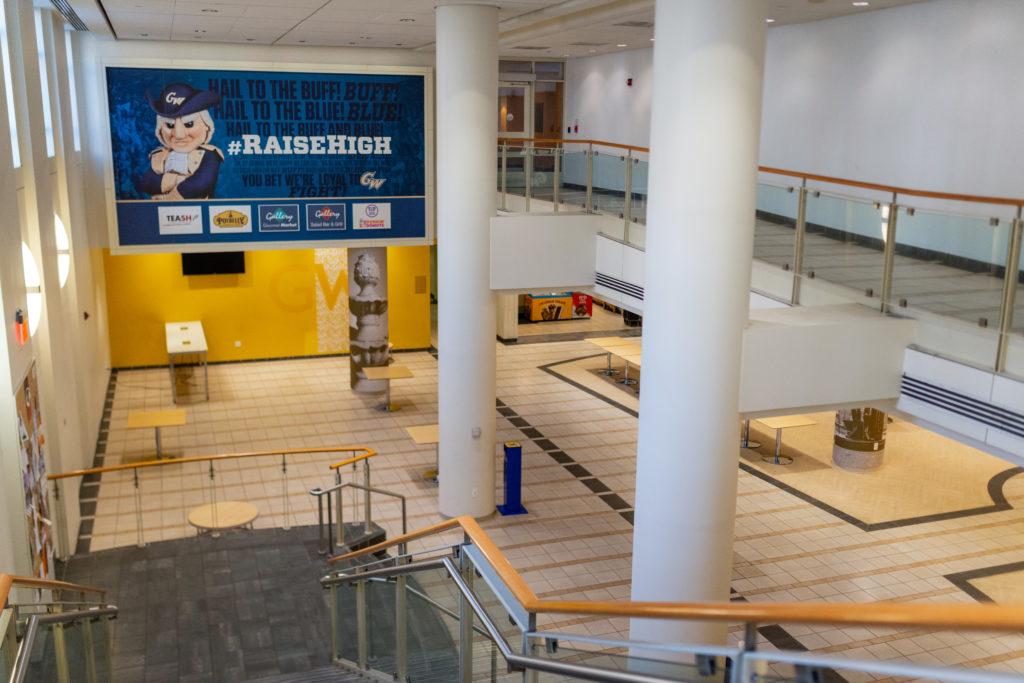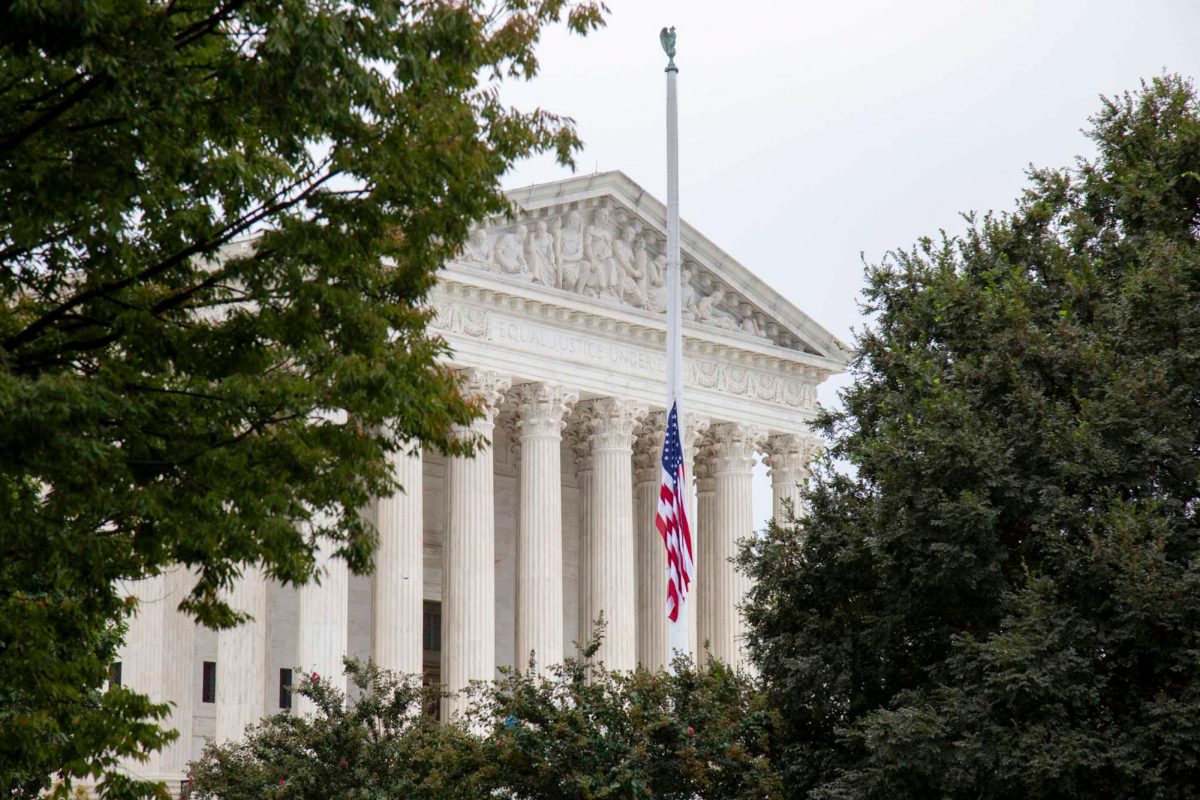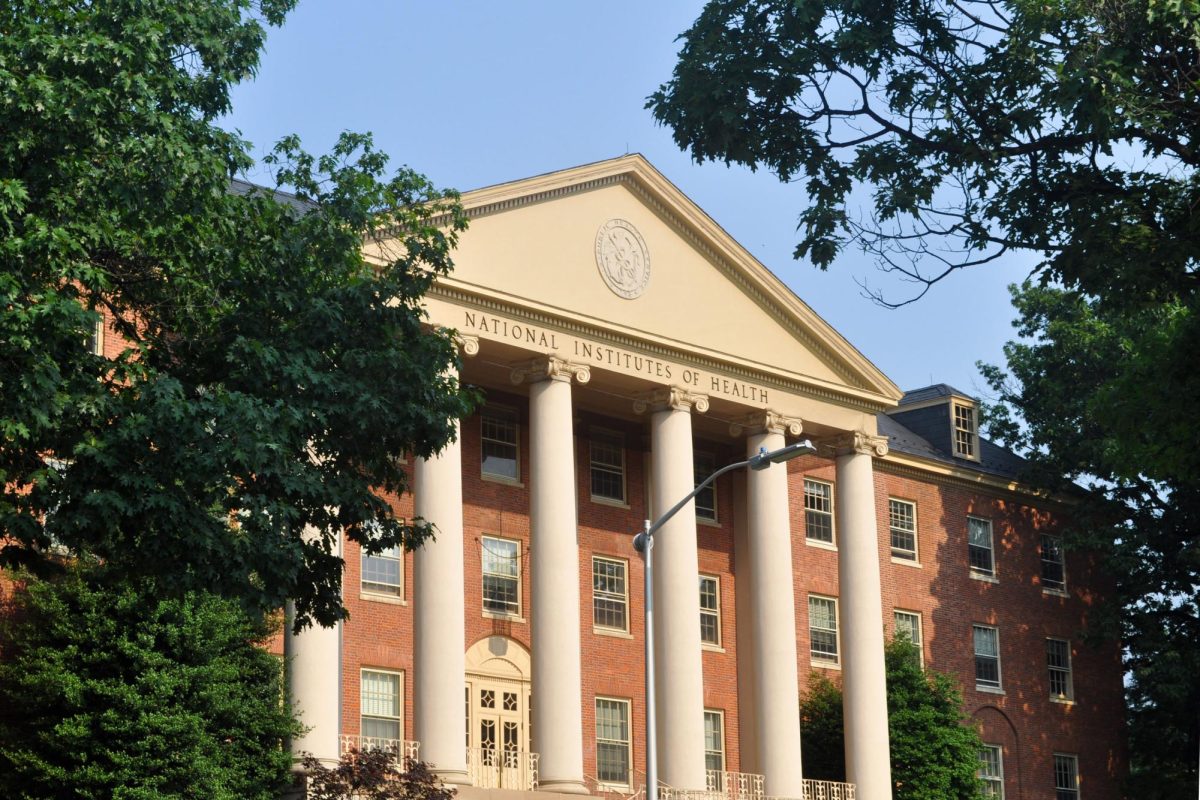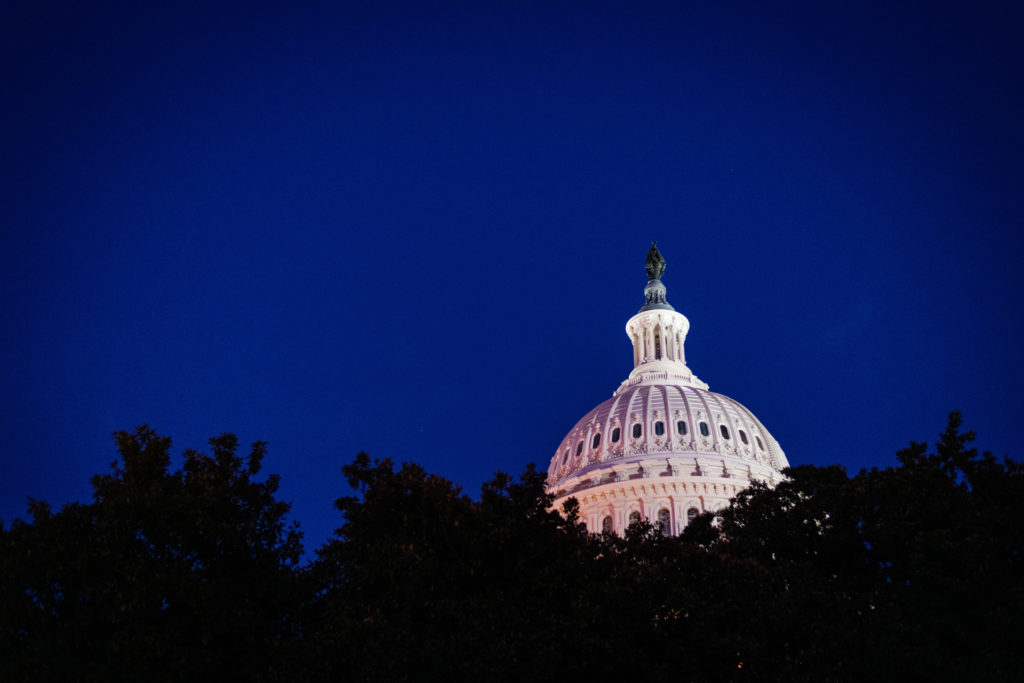GW tests its on-campus student population more frequently and returns results more quickly than most other D.C. universities, a Hatchet analysis found.
The University has conducted about 25,000 tests since August, according to the COVID-19 dashboard, more often than most of D.C.’s six other schools. University spokesperson Crystal Nosal said students and employees have had positive experiences with GW’s testing protocols so far, adding that extending testing to include off-campus students has been a “significant service” to the greater Foggy Bottom community.
Nosal said most community members can get tested within five to eight minutes and can now get tested at two different sites on campus – Shenkman Hall and the Marvin Center.
“There have been a few instances with bottlenecks due to a large number of off-campus students testing and when the flu vaccine clinic first started,” she said in an email. “However, the University quickly pivoted, and we now have two separate testing sites to ensure there is enough space for distancing and safety.”
Of the District’s seven universities, GW, Georgetown and Howard universities all require students who are living on campus to be tested at least once a week, according to their respective universities’ online testing plans. GW has been administering about 300 to 700 tests daily, according to the COVID-19 tracking dashboard.
“It has been wonderful that our public health lab, campus COVID support team and testing site were able to accommodate this,” Nosal said. “With respect to the testing site staff, they are truly professional. They are adhering to the highest safety protocols, and we are grateful for their dedication and service to the GW community.”
Georgetown has tested almost 34,000 community members since August, according to its coronavirus website. Howard has tested about 3,000 community members between Aug. 17 and Oct. 9, according to its COVID-19 tracking website.
Catholic and Trinity Washington universities only test students who are showing symptoms of the virus or students who have been exposed to COVID-19, their spokespeople said. The University of the District of Columbia does not offer on-campus testing, UDC officials said.
Both GW and Howard process COVID-19 tests in labs based in each respective university and can return test results in 24 to 48 hours. Howard was one of 10 HBCUs to receive part of a $15 million dollar fund from the Gates Foundation specifically for the purpose of coronavirus testing.
Nosal said officials expect to spend $8.5 million on coronavirus testing and contact tracing. With as many as 1,500 additional students expected to live on campus in the spring, GW will be testing a significantly larger number of people if current protocols remain in place.
Since mid-August, the University has reported 64 positive COVID-19 tests as of Sunday, according to the COVID-19 testing dashboard. Tests have been administered to on-campus faculty and staff, as well as to the approximately 500 students living on campus.
Georgetown partners with One Medical, a primary care network, to perform its mandatory weekly testing, according to Georgetown’s website. The school’s test results are reported back in five to seven days, compared to GW’s one- to two-day turnaround time, the website states.
Gabrielle Obusek, a spokesperson for Catholic University, said the school does not require most on-campus community members to be tested on a regular basis, and each test costs about $100. Test results are returned in about 48 hours, according to the website.
“The PCR tests being utilized by Catholic University are generally in the $100 range, plus staffing costs to administer the testing center,” Obusek said. “Symptomatic testing is billed back to the student’s insurance, and surveillance testing costs are absorbed by the university.”
Trinity Washington University hosts about 200 students on campus, according to the school’s reopening plan. Trinity is allowing students interested in taking a test to make an appointment to take nasopharyngeal swab tests on campus, which offers results in 72 hours.
Alex Bako, the director of risk management at the University of the District of Columbia, said UDC officials have not offered on-campus testing this semester but are in the process of developing protocols to test some campus community members. He said the school received 15-minute antigen tests from the Department of Health and Human Services late last month.
“Right now we’re putting some plans together to periodically test high-risk groups of students, staff and faculty coming on campus,” Bako said. “Those groups will be student-athletes, essential employees and other people.”
Lisa Stark, an AU spokesperson, declined to comment on the university’s COVID-19 testing procedures.
A Gallaudet University spokesperson did not return multiple requests for comment.
Experts in university safety said widespread and regular testing is critical to control coronavirus outbreaks on college campuses by isolating sick students before they infect others.
A. David Paltiel, a professor of public health at Yale University, said identifying people who are infectious as soon as possible, even if they are asymptomatic, is vital for slowing the spread.
“You can’t just wait until somebody exhibits the symptoms of COVID-19 before springing into action,” he said. “You actually have to go looking for it among the asymptomatic.”
Paltiel said schools that have had COVID-19 outbreaks have either not been conducting testing or only testing students with symptoms, while campuses with “frequent, routine, asymptomatic screening” have not had major outbreaks.
Data compiled by Davidson College and analyzed by NPR shows that only about 6 percent of in-person universities around the country are testing all of their students on a regular basis.
“Waiting until somebody actually has symptoms of disease before you spring into action is behaving like a fire department that only responds to calls once the house is already reported to have burnt the ground – it’s too late,” Paltiel said.
Gigi Gronvall, an associate professor of immunology at Johns Hopkins University, said quick test results are vital for universities to stop the transmission of COVID-19 because students are less likely to infect others while awaiting results. She said rapid tests are slightly less accurate than PCR tests, which are more thorough and often take several days to be processed, but the speed of the rapid tests make them more valuable to universities.
“Getting test results quickly is the most important part of the test,” Gronvall said.








